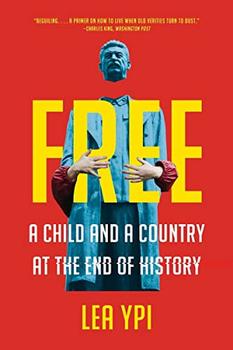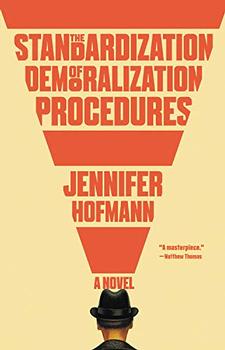Summary | Excerpt | Reviews | Beyond the book | Read-Alikes | Genres & Themes | Author Bio

A Memoir
by Rob SpillmanIn his intimate, entertaining, and heartfelt memoir, Spillman narrates a colorful, music-filled coming-of-age portrait of an artist's life that is also a cultural exploration of a shifting Berlin.
Rob Spillman, the award-winning, charismatic cofounding editor of the legendary Tin House magazine, has devoted his life to the rebellious pursuit of artistic authenticity. Born in Germany to two driven musicians, his childhood was spent among the West Berlin cognoscenti, in a city two hundred miles behind the Iron Curtain. There, the Berlin Wall stood as a stark reminder of the split between East and West, between suppressed dreams and freedom of expression.
After an unsettled youth moving between divorced parents in disparate cities, Spillman would eventually find his way into the literary world of New York City, only to abandon it to return to Berlin just months after the Wall came down. Twenty-five and newly married, Spillman and his wife, the writer Elissa Schappell, moved to the anarchic streets of East Berlin in search of the bohemian lifestyle of their idols. But Spillman soon discovered he was chasing the one thing that had always eluded him: a place, or person, to call home.
Spillman captures the rawness of youthful artistic ambition eloquently and self-consciously, the "amplified emotions you only feel in your twenties, when you are wildly changeable." His seeking of authenticity and creative fulfillment, from latching on to early influences like Hunter Thompson to his disappointment in the debauched literary culture of 1980s New York, make for a melancholy but ultimately redemptive journey...continued
Full Review
 (728 words)
(728 words)
(Reviewed by Lisa Butts).
In his memoir All Tomorrow's Parties, Rob Spillman, the son of American expat musicians, includes a flashback to his childhood in Germany. He paints a bleak portrait of East Berlin in the 1970s, with its worthless currency, "sour-faced" military guards, secret police, and drab institutional architecture. It is not surprising that by the late '80s, citizens were spoiling for revolution and a domino effect of political events and popular uprising resulted in just that. In the more contemporary sections of the book, Spillman and his wife spend time in East Berlin as reunification is underway.
In addition to the factors mentioned above, widespread economic crisis worsened dissatisfaction among the East German populace. In 1989, Hungary ...

If you liked All Tomorrow's Parties, try these:

by Lea Ypi
Published 2022
A reflection on "freedom" in a dramatic, beautifully written memoir of the end of Communism in the Balkans. Longlisted for the 2021 Baillie Gifford Prize for Non-Fiction.

The Standardization of Demoralization Procedures
by Jennifer Hofmann
Published 2020
An audacious debut that combines spycraft, betrayals, and reversals to show that sometimes it's the secret that destroys you.